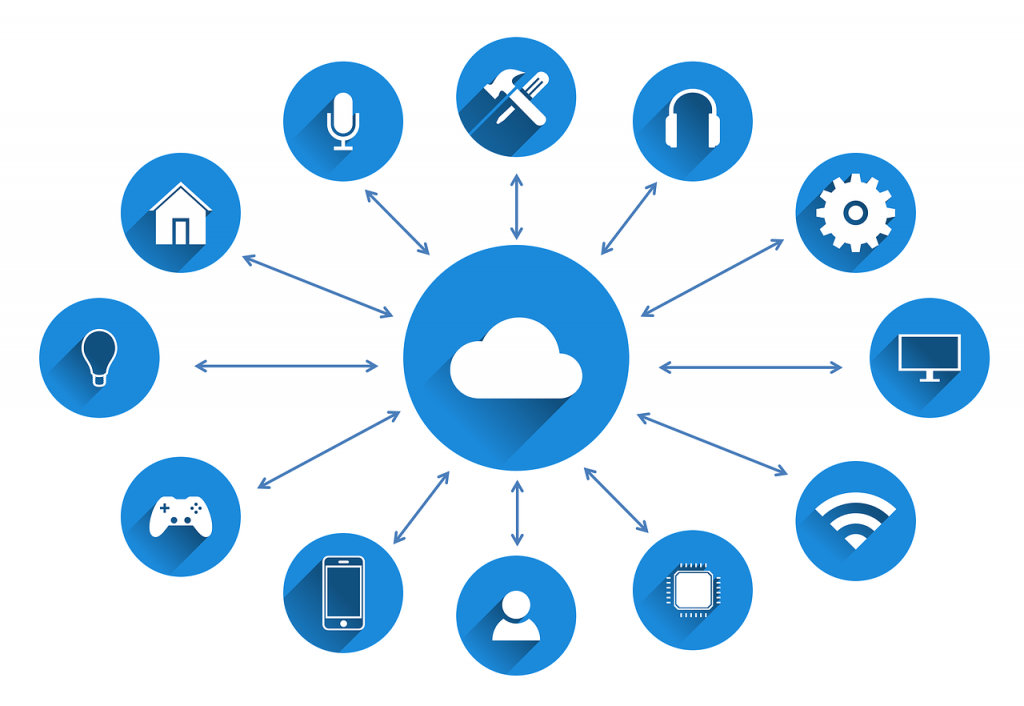
Welcome to Cloud Era
Cloud-computing services include a wide range of options now, from basic storage, network capabilities and processing capabilities, to native language processing and artificial intelligence and standard office applications. Mostly any app that does not require you to be physically close to the computer, hardware you are currently using can be delivered via the cloud.
Choose the best Cloud Services from TechBit solutions. We will help you choose the services that you need.
Fully Integrated Cloud Support / Service
Cloud Integeration
Cloud Integration is a program of tools and technologies that integrates a variety of applications, systems, storage, and real-time IT data transfer systems and processes. Cloud integration can also be called cloud data integration, cloud system integration, cloud-based integration, and iPaaS. Possible full-to-cloud or multimedia deployment is regarded as a cloud computing – the main goal is to serve as an integrated IT infrastructure that directs data flow. Once integrated, integrated cloud data and services can be accessed through multiple devices via the network or the Internet.
Benefits of using Cloud Services
- Uptime
- Security
- Flexibility
- Cost Effective
Given the current state of the environment, it is not enough for organizations to place a recycling bin in the rest area and claim to be doing their part to help the planet. Real sustainability requires solutions that address waste at all levels of the business. Handling in the clouds is very environmentally friendly and leads to carbon emissions.
Cloud infrastructure supports environmental performance, enabling virtual services than virtual products and computer hardware, as well as reducing paper waste, improving energy efficiency, and (assuming it allows employees access to any internet connection) to reduce passenger-related emissions.
Many organizations have security concerns when it comes to adopting cloud-computing solutions. After all, if files, programs, and other data can be stored securely in a location, how can you know if they are safe? If you can access your data remotely, then what prevents an cyber criminal from doing the same thing? Well, just a little bit.
First, the full-time job of cloud hosting is a careful monitoring of security, which is much more efficient than a standard indoor system, where an organization has to split its efforts into a host of IT concerns, security is one of the IT issues. see. And while many businesses are reluctant to consider the possibility of internal data theft, the fact is that a surprisingly high percentage of data theft occurs internally and is perpetrated by employees. If this is the case, it may be best to keep sensitive information out of the reach. Of course, all of this is abstract, so let's consider solid statistics.
Your business has a limited amount of focus only to differentiate between all of its obligations. If your current IT solutions force you to devote yourself too much to computer and data storage, you will not be able to focus on achieving business goals and customer satisfaction. On the other hand, by relying on an external organization to take care of all IT and infrastructure management, you will have more time to contribute to your business activities that directly affect your main goal.
The cloud gives businesses more flexibility overall compared to hosting on a local server. Also, if you need more bandwidth, a cloud-based service can meet that need quickly, rather than getting a complicated (and expensive) upgrade to your IT infrastructure. This improved flexibility and flexibility can make a huge difference in the overall functioning of your organization.
Once you are in the cloud, easy access to your company's data will save you time and money at the start of the project. Also, for those who are concerned that they will end up paying for features they do not need and do not want, many cloud-computing services are paid for as you go. This means that if you do not use what the cloud offers, at least you will not have to spend money on it.
The pay-as-you-go payment system works in the database you need to help your participants and customers, which means you'll get exactly the space you need, and you won't be charged for any space you don't get. t. When combined, these factors lead to lower costs and higher returns. Half of all CIOs and IT leaders surveyed by Bitglass reported cost savings in 2015 due to the use of cloud-based applications.



